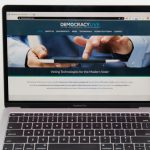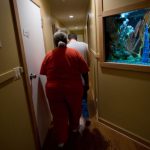Delaware will allow voters with physical disabilities and overseas and military voters to return their absentee ballots electronically, using online-based technology developed by Democracy Now, in its primary election next month. The decision comes despite grave warnings from the cybersecurity community that the technology doesn’t offer sufficient safeguards to protect the integrity of an election.
In a report to Congress, U.S. Secretary of Education Betsy DeVos said she will not seek changes to the central tenets of the Individuals with Disabilities Education Act and Section 504 of the Rehabilitation Act – including the right to a free, appropriate public education in the least restrictive environment – in response to the coronavirus pandemic. The report did make several recommendations for additional flexibility in areas such as vocational rehabilitation funding and personnel development scholarships.
ChristianaCare won a grant from the Federal Communications Commission (FCC) to expand its existing telehealth capabilities by providing devices and data plans to Delawareans in traditionally medically underserved populations. It will also offer onsite telehealth services to communities with high disease burden and challenges accessing virtual health services.
American Sign Language (ASL) interpreters are gaining attention as they appear in regular coronavirus briefings from governors and public health officials. While this makes some uncomfortable, as interpreters are expected not to seek attention, others hope the new visibility will lead to positive change – notably the use of an interpreter in White House coronavirus task force briefings.
A coalition of disability advocacy organizations are calling for the next round of federal coronavirus spending to include an estimated $50 billion on community-based services, including supporting people with developmental disabilities who wish to move from a facility to community-based living. They also call for direct support professionals to be declared essential personnel, which would give them access to personal protective equipment, and given hazard pay.





